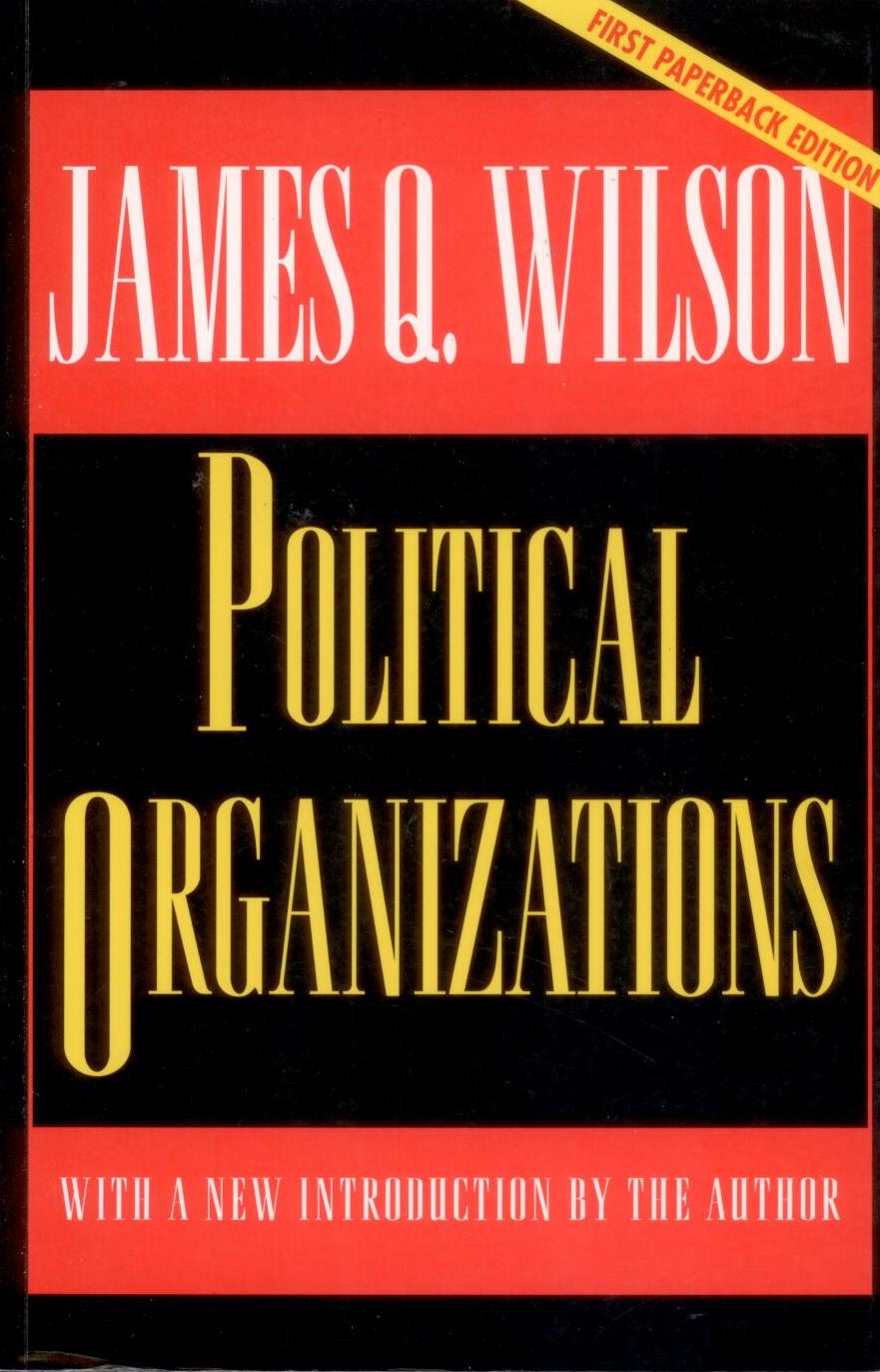James Q. Wilson, Political Organizations (Basic Books, 1974, 1977; Princeton University Press paperback edition, 1995).
The core of Political Organizations “is a ‘theory of incentives’ that Wilson and a friend of his from graduate school, Peter Clark, co-developed under [Edward] Banfield’s tutelage in 1961. The theory, which undergirds all his subsequent work on bureaucracy, concerns how formal organizations constrain individual behavior, and how different types of organizations use different types of incentives to induce individuals to join, sustain membership, and contribute their time, energy, or other resources. Wilson posits that there are three main types of incentives: solidary, the sense of pleasure, status, or companionship that arises out of meeting people in groups; material, including money, or things and services readily valued in monetary terms; and purposive, a psychic benefit that comes from serving a cause, defending a principle, or advancing a purpose that one values. Wilson and Clark noted in 1961 that organizations often switch their incentive systems. What Wilson explained in 1973 was that certain types of political organizations do the same, sometimes when they must, and other times when their leaders wish.”
John J. DiIulio, Jr. (2012)
Online:
Google Books

